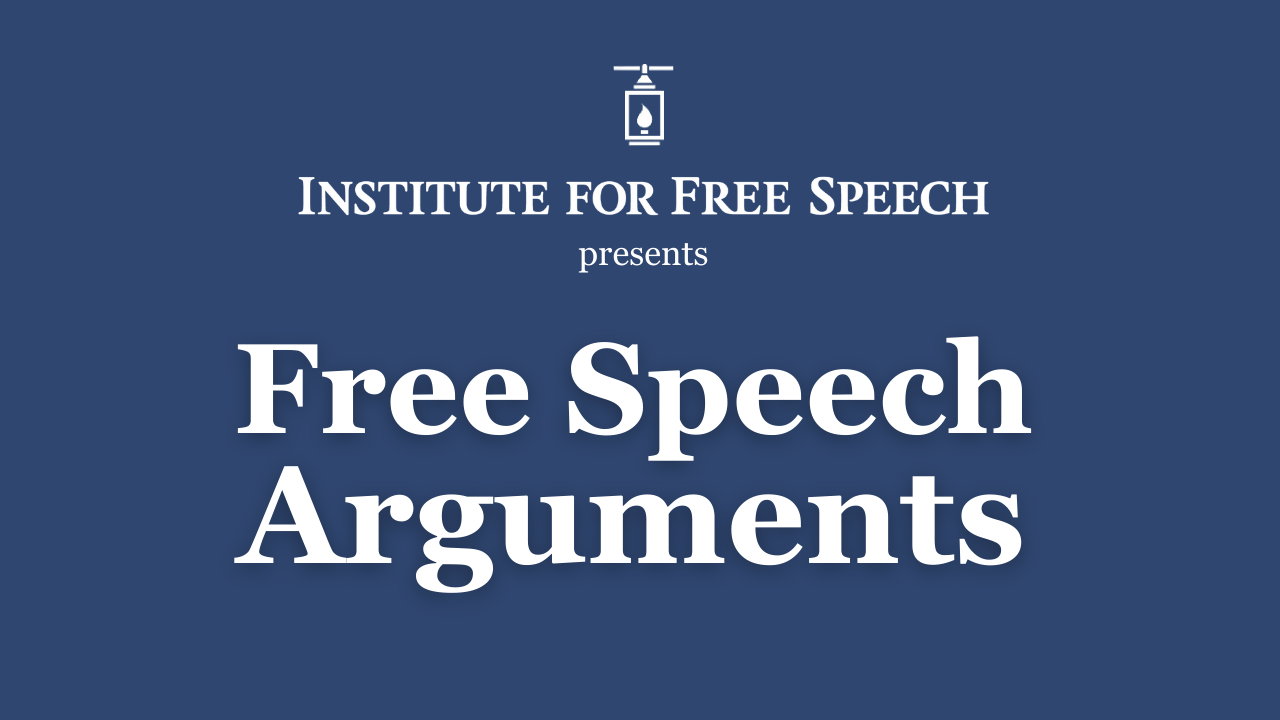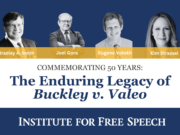Episode 30: Americans for Prosperity, et al. v. Meyer, et al.
Americans for Prosperity, et al. v. Meyer, et al., argued before Circuit Judges Johnnie B. Rawlinson, Patrick J. Bumatay, and Gabriel P. Sanchez in the U.S. Court of Appeals for the Ninth Circuit on May 15, 2025. Argued by Derek L. Shaffer (on behalf of Americans for Prosperity, et al.) and David Kolker (on behalf of Intervenor-Defendant Voters’ Right to Know) and Eric Fraser (on behalf of Arizona Citizens Clean Elections Commission).
Background of the case, from the Institute for Free Speech amicus brief:
Proposition 211 imposes sweeping disclosure rules unlike anything seen before. On every metric, the law expands on its predecessors. It covers more people, more speech, for a longer time. Where other laws narrow, Proposition 211 widens.
….
Proposition 211 expands on other disclosure rules in virtually every way. It does not limit disclosure to speech about elections, to speech close in time to elections, or to speech by those engaged mainly in election advocacy. It does not limit disclosure to donors who intend to support election advocacy, or even donors who know their dollars might be used for election advocacy. By expanding every part of an ordinary disclosure rule, Proposition 211 “accomplishes a shift in kind, not merely degree.” See Nat’l Fed’n of Indep. Bus. v. Sebelius, 567 U.S. 519, 583 (2012) (“NFIB”) (Roberts, C.J., op.). And that shift in kind turns a series of individually problematic provisions into a cataclysmic First Amendment violation.
Statement of the Issues, from the Appellants’ Opening Brief:
- Whether the district court erred in concluding that Proposition 211 is facially valid even though its disclosures are untethered to electoral activity, its burdens surpass the strength of the State’s asserted interest, and its requirements are not narrowly tailored to the problems it purports to solve.
- Whether the district court erred in concluding that Proposition 211 is valid as applied to Appellants, even though Appellants alleged a reasonable probability that disclosure of their donors’ names will subject them to threats, harassment, or reprisals.
- Whether the district court erred in concluding that Proposition 211 does not compel association even though its disclosure requirements tie organizations and their donors to candidates and causes irrespective of their actual beliefs.
Resources:
- CourtListener docket page for Americans for Prosperity, et al. v. Meyer, et al.
- Appellants’ Opening Brief
- Defendant-Appellees’ Answering Brief
- Answering Brief of Appellee-Intervenor Defendant
- Appellants’ Reply Brief
- Institute for Free Speech amicus brief
Listen to the argument here:
The Institute for Free Speech promotes and defends the political speech rights to freely speak, assemble, publish, and petition the government guaranteed by the First Amendment. If you’re enjoying the Free Speech Arguments podcast, please subscribe and leave a review on your preferred podcast platform.














